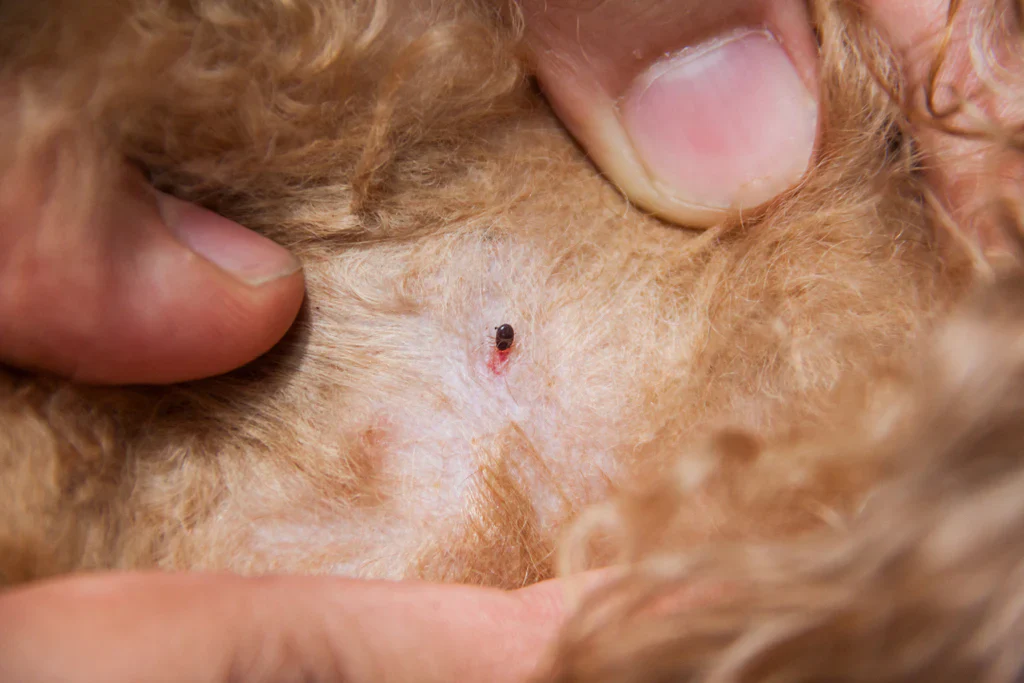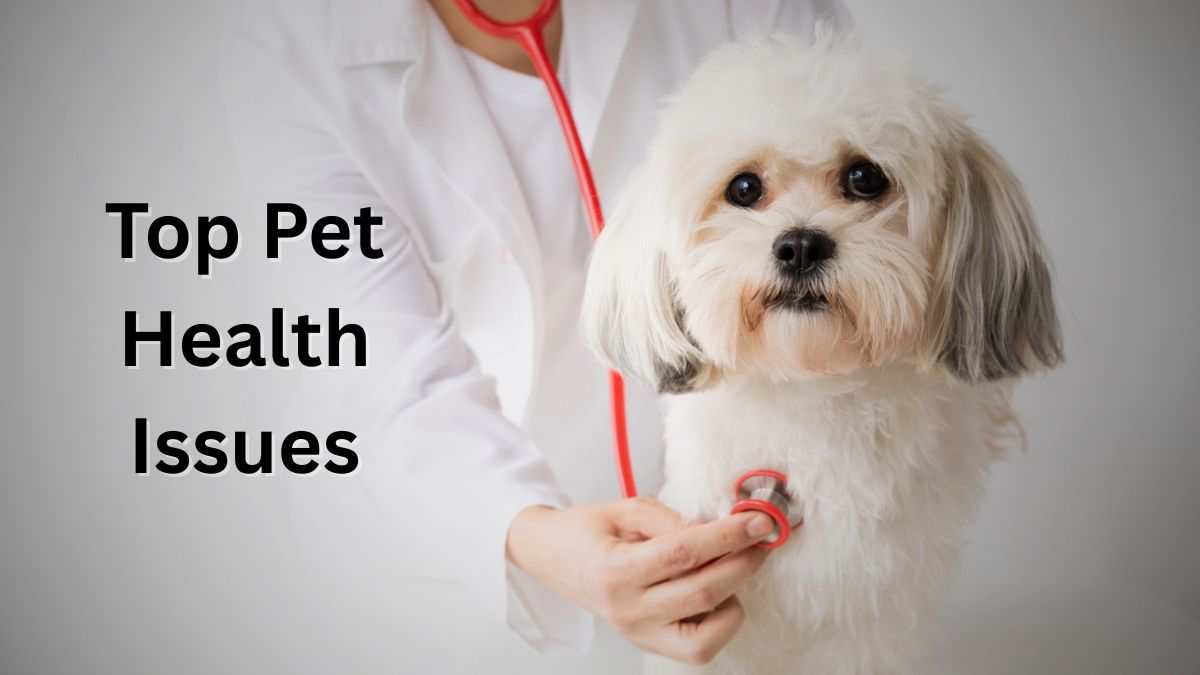Pets get sick just like we do, and knowing what to look for can help you catch problems early. If your pet is itching a lot, losing fur, scooting, or you see bugs in their fur, they might have fleas or worms. Gaining weight or being tired all the time could mean they’re overweight.
Bad breath or trouble eating can point to dental issues, while ear infections often cause head shaking or a bad smell. Vomiting, diarrhea, or going to the bathroom more than usual could be signs of stomach or bladder problems. If they’re limping, stiff, or not moving much, their joints might hurt. And if they’re sneezing, coughing, or have a runny nose, it could be a cold or infection. When in doubt, a quick trip to the vet can make a big difference.
1. Obesity in Pets: What It Means and Why It Matters?

What is Pet Obesity?
Obesity means your pet has too much body fat, which can seriously impact their health and lifespan.
Common Causes:
- Overfeeding or too many treats
- Lack of daily exercise or playtime
- Feeding human food/table scraps
- Certain breeds are more prone (like Labradors, Dachshunds)
- Age and slowed metabolism
- Medical conditions like hypothyroidism
Signs Your Pet Might Be Overweight:
- Can’t see or feel their waist
- Tired often or pants a lot
- Doesn’t want to move or play
- Visible weight gain
- Stiff joints or difficulty walking
Health Risks of Obesity:
- Diabetes (especially in cats)
- Joint problems like arthritis
- Heart and lung issues
- Liver disease
- Shorter lifespan
How to Help:
- Measure meals and limit treats
- Daily walks or active play
- Avoid table scraps
- Talk to your vet about diet
- Schedule regular weigh-ins/checkups
2. Dental Disease in Pets: Don’t Ignore That Bad Breath

What is Dental Disease?
It starts with plaque, turns into tartar, and can lead to gum infections, tooth loss, and pain.
Signs to Watch For:
- Foul breath
- Yellow/brown buildup on teeth
- Red or bleeding gums
- Drooling, pawing at mouth
- Trouble chewing or eating
- Loose or missing teeth
Why It’s Serious:
- It’s painful, even if your pet hides it
- Infections can spread to the heart, liver, or kidneys
- Advanced cases need extractions or surgery
How to Prevent It:
- Brush their teeth regularly (use pet toothpaste)
- Offer dental chews and crunchy kibble
- Get professional cleanings from your vet
- Watch for signs early—don’t wait!
3. Parasites in Pets: Fleas, Worms & Other Creepy Crawlies

External Parasites:
- Fleas – cause intense itching, leave flea dirt
- Ticks – can transmit diseases like Lyme
- Mites – lead to mange or itchy ears
- Lice – rare but itchy
Internal Parasites:
- Roundworms, tapeworms, hookworms
- Heartworms – especially dangerous, spread by mosquitoes
Signs Your Pet May Have Parasites:
- Constant scratching or scooting
- Worms in poop or rice-like pieces near the rear
- Vomiting, diarrhea, bloated belly
- Low energy or sudden weight loss
How to Protect Your Pet:
- Use monthly flea, tick, and worm preventatives
- Keep bedding and play areas clean
- Don’t let them eat trash or drink dirty water
- Regular vet checks (including stool samples)
4. Ear Infections in Pets: Why They Keep Shaking Their Head

Causes of Ear Infections:
- Floppy ears or trapped moisture
- Allergies (food, pollen, dust)
- Ear mites
- Excess wax or hair
- Foreign objects (like grass)
Signs Something’s Wrong:
- Head shaking or tilting
- Scratching ears
- Bad smell or discharge
- Red, swollen, or painful ears
- Rubbing ears on furniture
- Loss of balance (in severe cases)
Prevention Tips:
- Gently clean ears with vet-approved cleaner
- Dry ears after baths or swimming
- Keep ear hair trimmed
- Monitor for allergy symptoms
5. Skin Allergies in Pets: More Than Just Itchy Skin

Common Triggers:
- Fleas – even one bite can trigger a reaction
- Food allergies – usually proteins like chicken or beef
- Environmental allergens – pollen, dust, mold
- Contact allergies – certain shampoos or cleaners
Signs of Skin Allergies:
- Constant itching or licking
- Red, irritated skin
- Bald spots or hot spots
- Scabs or rashes
- Frequent ear infections
How to Help:
- Get flea control on board fast
- Try food trials if allergies are suspected
- Use vet-recommended shampoos
- Ask about anti-itch meds or allergy treatments
- Keep their space clean and allergen-free
Vomiting & Diarrhea in Pets: What’s Normal, What’s Not

Occasional upset stomach? Probably no big deal. But repeated vomiting or diarrhea is a red flag.
Causes:
- Eating trash or spoiled food
- Sudden diet changes
- Parasites or infections
- Allergies or stress
- Toxins (like chocolate or grapes)
- Underlying health issues
When to Call the Vet:
- Blood in vomit or stool
- Lethargy or dehydration
- Not eating or drinking
- Ongoing vomiting or diarrhea
Mild Cases – Try This:
- Withhold food for 8–12 hours (not water)
- Offer bland meals (boiled chicken & rice)
- Reintroduce regular food gradually
7. Urinary Tract Issues in Pets: Why Accidents Might Happen
Common Problems:
- UTIs
- Bladder stones or crystals
- FLUTD in cats
- Incontinence (especially in older pets)
- Kidney disease
- Hormonal imbalances
Signs to Watch:
- Peeing more or straining
- Accidents indoors
- Blood in urine
- Licking their private parts a lot
- Lethargy or not eating
Prevention Tips:
- Encourage water drinking
- Provide regular bathroom breaks
- Keep the urinary area clean
- Feed urinary-health-friendly diets
- Annual vet checkups
8. Arthritis & Joint Pain: Helping Your Pet Stay Mobile
Causes of Joint Issues:
- Age-related wear and tear
- Certain breeds (e.g., German Shepherds)
- Extra weight
- Past injuries
- Infections or congenital joint problems
Signs of Arthritis:
- Limping or stiffness
- Not wanting to jump or play
- Muscle loss near joints
- Trouble getting up or lying down
- Licking sore joints
How You Can Help:
- Maintain healthy weight
- Use joint supplements (glucosamine, omega-3)
- Try low-impact activities (like swimming)
- Get vet-approved pain meds
- Use ramps or soft bedding for comfort
Bonus Tips: How to Catch Pet Health Issues Early
- Schedule routine vet checkups
- Watch for changes in energy, behavior, or appetite
- Check their coat, teeth, and skin regularly
- Monitor poop and pee habits
- Look for lumps, bumps, or swelling
- Keep them mentally and physically active
Your pet can’t tell you when something’s wrong, but their body will. Keep an eye on these signs, trust your gut, and when in doubt, make that vet appointment. Acting early can save your pet from pain and save you from high vet bills later.
Must read: Pet friendly living: Smart Tips for Cat and Dogs Owner








